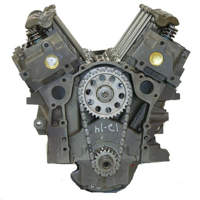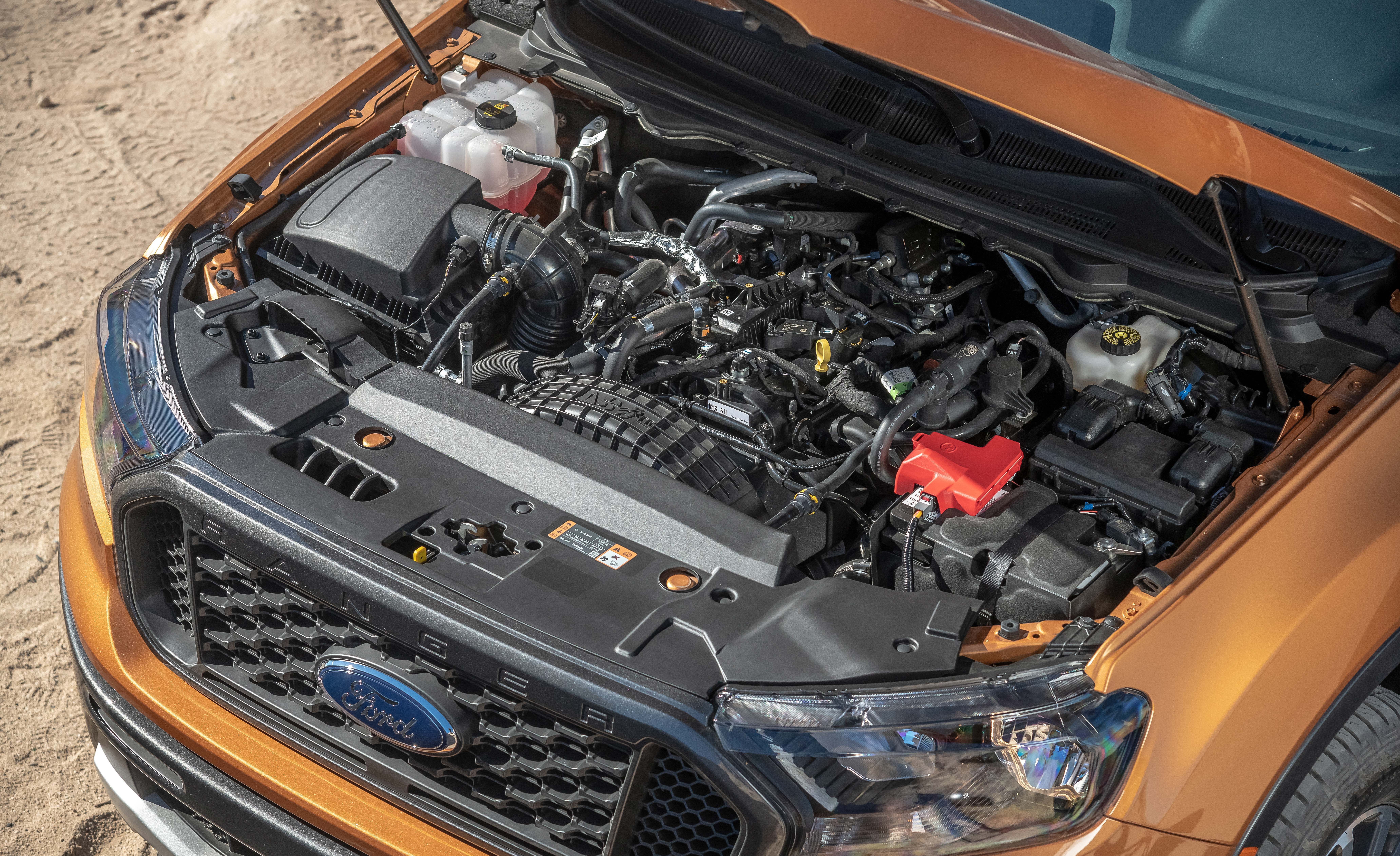Why the 2.2 Ford Ranger Engine Is a Popular Choice for Rugged and Reliable Performance
Why the 2.2 Ford Ranger Engine Is a Popular Choice for Rugged and Reliable Performance
Blog Article
Exactly How to Select the Right Cars And Truck Engine for Maximum Performance and Effectiveness
Choosing the proper cars and truck engine to achieve an optimum equilibrium of efficiency and effectiveness requires a nuanced understanding of various engine types and their specific characteristics (2.2 ford ranger engine). Factors such as engine displacement, the number of cylinders, and gas type play a pivotal role in figuring out both power outcome and gas economic situation.
Recognizing Engine Types
When selecting a car, one of the most crucial components to consider is the engine type, which offers as the heart of the car. The engine kind considerably affects the cars and truck's overall efficiency, long life, and viability for your driving needs. There are primarily three engine kinds to consider: internal burning engines (ICE), hybrid engines, and electric engines.
Internal combustion engines continue to be the most usual, operating on fuel or diesel. They are recognized for their power and velocity, making them ideal for performance-oriented cars. They might drop short in gas effectiveness and environmental effect.
Hybrid engines combine an internal burning engine with an electrical motor, offering an equilibrium between efficiency and fuel economic climate. They are significantly popular for vehicle drivers seeking lowered emissions while still delivering ample power.
Electric engines, powered entirely by batteries, are getting traction due to their ecological advantages and lower running prices. They provide instantaneous torque and a silent driving experience, making them ideal for metropolitan travelling.

Performance vs. Performance
Selecting the ideal engine type involves considering the compromises between efficiency and performance. Efficiency generally refers to exactly how well an engine can deliver power and acceleration, which is commonly related to bigger variation engines or those with turbocharging capacities. These engines typically offer electrifying driving experiences and quick feedback times, making them popular amongst fanatics.
On the other hand, effectiveness concentrates on gas economic situation and reduced emissions. Smaller sized engines, specifically those equipped with innovative modern technologies such as straight gas shot and variable valve timing, often tend to deliver far better miles per gallon and lowered carbon impacts. While these engines may sacrifice some power compared to their bigger equivalents, they often master daily driving situations where high performance is not always necessary.
Inevitably, the selection between performance and effectiveness rest on specific priorities. A motorist that values spirited driving might prioritize a high-performance engine, while a person looking for cost-effective commuting might favor an effective alternative. Recognizing these trade-offs is crucial for making an informed choice that lines up with your driving requirements and way of living, guaranteeing that the picked engine kind enhances your assumptions for both performance and performance.
Key Specifications to Think About
Recognizing essential specs is necessary for making a notified choice regarding the appropriate vehicle engine. When picking an engine, numerous vital factors call for consideration to make certain optimal efficiency and performance.
It suggests the complete quantity of the engine's cyndrical tubes and usually correlates with power result; larger displacements often yield more power. Engines with more cylinders can supply smoother operation and greater power, while smaller arrangements can boost gas efficiency.
Furthermore, the engine's arrangement, whether inline, V-type, or rotating, influences the general design and efficiency qualities of the lorry - 2.2 ford ranger engine. Turbocharging and supercharging modern technologies need to also be reviewed; these increase an engine's power outcome without substantially increasing its dimension, therefore improving effectiveness
Gas kind is another crucial factor to consider, as it influences both performance and expenses. Lastly, the engine's compression ratio influences efficiency and power delivery; a greater proportion typically brings about much better effectiveness, however may call for exceptional gas. By carefully analyzing these requirements, you can pick an engine that straightens with your efficiency and efficiency objectives.
Assessing Driving Requirements
Assessing driving demands is a basic step in figuring out the appropriate vehicle engine for your lifestyle and use patterns. If your driving largely is composed of short commutes in city environments, a smaller sized engine with excellent gas effectiveness may be enough.
Consider the surface you see post typically browse. Hilly or rugged landscapes might demand an engine with higher torque for far better efficiency. Furthermore, reflect on traveler and cargo needs; bigger households or those that deliver items might gain from vehicles with enhanced power and ability.
Diesel engines commonly supply superior torque and gas economic situation for heavier automobiles, while gas engines may offer a smoother and quieter trip. Variable in environmental factors to consider, as hybrid or electrical engines can give a much more sustainable alternative without compromising performance.
Future Trends in Engine Modern Technology
As the auto sector proceeds to develop, developments in engine technology are paving the means for more effective and lasting driving experiences. One substantial trend is the shift toward electrification, with crossbreed and totally electrical powertrains getting importance. Automakers are investing heavily in battery innovation to enhance energy density and lower billing times, ultimately boosting the practicality of electric vehicles (EVs)
Another arising trend is the development of hydrogen fuel cell engines. 2.2 ford ranger engine. These systems offer the potential for zero-emission driving while supplying refueling times equivalent to typical fuel engines. Furthermore, advancements in combustion innovation, such as variable compression ratios and boosted turbocharging, are maximizing conventional internal burning engines for far better effectiveness and performance
Digital integration is also a critical element of future engine modern technology. The execution of expert system and artificial intelligence enables real-time information evaluation, enabling smarter engine management systems that adjust to driving problems and improve fuel efficiency.

Conclusion
Finally, picking the suitable cars and truck engine necessitates a thorough investigate this site examination of different variables, including engine type, efficiency requirements, and effectiveness goals. By comprehending the distinctions in between various engine kinds and thinking about crucial requirements, individuals can align their selections with certain driving requirements. As innovations in engine technology remain to emerge, remaining educated regarding future patterns will further enhance decision-making, inevitably leading to a vehicle that balances performance and gas effectiveness successfully.
Selecting the appropriate automobile engine to accomplish an optimal equilibrium of performance and effectiveness necessitates a nuanced understanding of different engine types and their particular attributes. There are mostly three engine types to take Your Domain Name into consideration: interior combustion engines (ICE), hybrid engines, and electrical engines.
Efficiency generally refers to how well an engine can supply power and acceleration, which is usually associated with larger displacement engines or those with turbocharging capabilities. Diesel engines typically offer superior torque and fuel economic climate for heavier automobiles, while gas engines might provide a smoother and quieter trip.In conclusion, selecting the suitable automobile engine demands a comprehensive assessment of various factors, consisting of engine kind, performance demands, and effectiveness goals.
Report this page